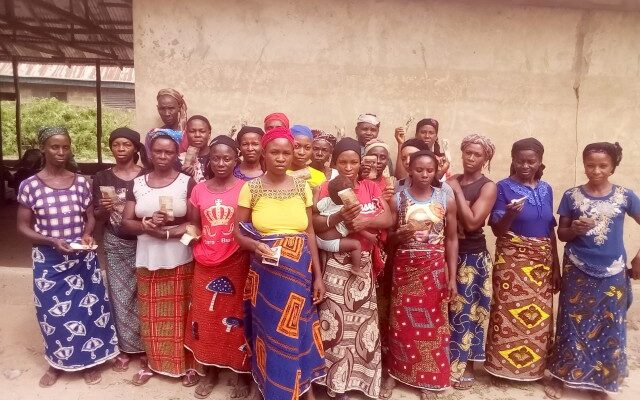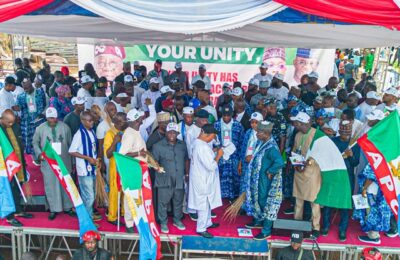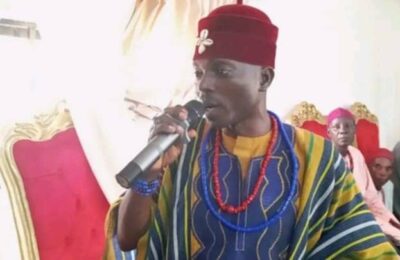In Nigeria’s quest for sustainable development, gender inclusion is no longer a mere desideratum—it is a cardinal necessity. In Igala land, where tradition converges with modernity, the voices of women have often been silenced by entrenched cultural biases, patriarchal norms, and political marginalization. It is imperative to ask: can any community truly flourish when half of its populace remains systematically excluded? A 2023 report by UN Women, Nigeria underscored the dire reality faced by rural women, particularly in Kogi State, highlighting their limited access to financial services and credit facilities. This systemic exclusion underscores the urgent need for policy reforms that embrace the full potential of women. As Phumzile Mlambo-Ngcuka, former UN Women Executive Director, aptly noted, “Development cannot be achieved if half of the population is left behind.” For Igala’s developmental agenda to maintain relevance in Nigeria’s broader transformation, it must center its women—not relegate them to the periphery.
Igala culture has historically celebrated formidable women—none more so than Inikpi, the legendary princess whose selfless sacrifice saved her land. She epitomizes valour and devotion. Yet, in contemporary times, the women of Igala are often excluded from the corridors of power where decisions shaping their future are made. An Igala proverb poignantly declares, “A home without the voice of a woman is like a market without traders.” Unfortunately, the influence of religious interpretations has compounded this silence. Distorted understandings of scripture have often been deployed to relegate women to subordinate roles like other rooms and kitchen. However, scriptures like Proverbs 31 extol women who govern, invest, and uplift their homes and communities. Apostle Paul’s assertion, “There is neither male nor female, for ye are all one in Christ Jesus,” demands a renewed interpretation in Igala society, where cultural religion often supplants divine mandates.
From Ajaka to Ankpa, from Ibaji to Abocho, Igala women are the bedrock of agriculture, family life, and community health. Yet when it comes to land ownership, political participation, or economic empowerment, they remain largely invisible. Pioneers like Grace Ogwuche in healthcare, Ruth Audu in education, and the late Hon. Justina Abalaka in politics have made significant strides but have seldom received institutional backing. Their legacies, instead of forming the bedrock for systemic change, often fade into obscurity. Dr. Amina Mama’s poignant observation that “African development will remain a dream until African women become equal partners in shaping it” encapsulates the heart of the issue. These individual triumphs must be institutionalized into comprehensive, policy-backed frameworks that ensure sustainable progress for all women in Igala land.
Education serves as the cornerstone of any gender-inclusive development strategy. A 2022 study by Professor Abiola Akiyode-Afolabi emphasized that “gender-responsive education policy is the bridge between poverty and power for African girls.” In Igala, challenges such as early marriage, domestic obligations, and entrenched cultural biases severely impede girls’ educational attainment. The 2024 initiative by UN Women in Bauchi State, which introduced automated rice milling technology to empower women in rural communities, exemplifies successful efforts to bridge the gender gap in education and economic opportunity. Additionally, the UN’s target to provide decent jobs for 50,000 young women in North Central Nigeria by 2027, particularly in agribusiness and water resource management, offers a compelling model for inclusive growth. Communities must collectively commit to elevating girls’ education, recognizing it as the primary driver for societal advancement.
Beyond education, healthcare and safety form the critical pillars of female empowerment. Reproductive care, maternal health, and protection from gender-based violence remain pressing concerns in Igala land. A 2023 UN Women-supported project aimed at addressing gender-based violence in rural Nigeria underscores the urgency of this issue. Local governments must prioritize mobile clinics, health education, and gender-sensitive training for healthcare workers. Furthermore, integrating traditional birth attendants into the formal healthcare system through retraining will ensure that cultural practices harmonize with modern medical advancements, creating a more inclusive healthcare framework for Igala women.
Political participation must also be democratized to ensure gender equity. In Igala politics, women are often relegated to symbolic roles, yet when given real opportunities, they demonstrate unparalleled leadership. Dr. Joe Okei-Odumakin’s assertion that “Nigerian democracy will mature the day women are no longer symbolic figures, but strategic actors” resonates deeply with the Igala experience. Political parties must allocate positions for women, not as a token gesture, but as an essential aspect of democratic justice. Electoral zoning formulas should evolve to include gender equity as a foundational principle. A democracy that excludes its women is one that denies its very essence.

Culture, however, is not static but dynamic, and the same society that honored Inikpi must also celebrate the daughters of today. A cultural renaissance is needed—one that champions female leadership in local festivals, school curricula, media, and community outreach programs. An Igala elder once remarked, “When the woman is blind, the family gropes in darkness.” It is high time to illuminate the path for women—not with condescension, but with purpose and clarity. Cultural re-education must be intentional, strategic, and unapologetically progressive.
No development agenda is complete unless it answers the fundamental question of women’s inclusion. Who speaks for them? Who listens to them? Who involves them in the planning of the future? Inikpi gave her life for her people—today’s Igala women deserve the right to live theirs fully, boldly, and equally. Nigeria must reevaluate its gender dynamics from the grassroots. For the Igala people, this reimagining begins by recognizing women not merely as supporters of power but as embodiments of power in their own right. Let this vision be articulated, taught, and lived. Women must not simply applaud the agenda—they should write it.
– Inah Boniface Ocholi writes from Ayah – Igalamela/Odolu LGA, Kogi state.
08152094428 (SMS Only)





